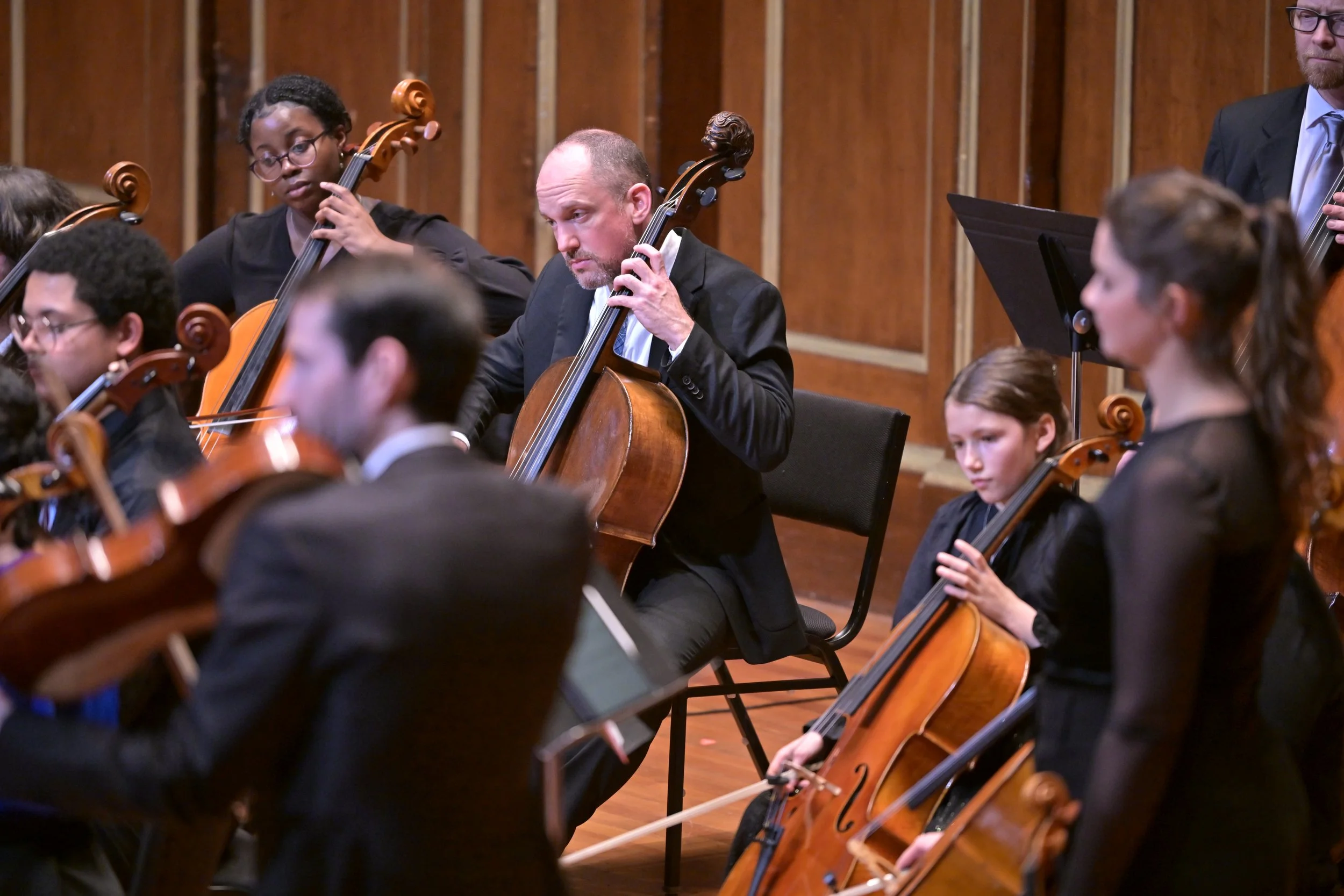Miki Cloud, AFC violinist and co-curator of Old Friend, met with this week's guest artist, Gabriel Kahane to talk Schubert, food, and their collaboration.
Miki Cloud: Our first creative meeting for this collaboration was at New York's Toto Ramen - a cult favorite. Do you think Schubert would be a ramen fan, and if so, what would his order be? (Shio, miso, tonkotsu, veggie or spicy? )
GK: Schubert would absolutely have been a ramen fan, but I'm fairly certain that he, being such a sickly fellow, would have been diagnosed with some super annoying allergy that would have mostly prevented him from eating ramen, except at lame-o gluten-free vegan ramen joints. This would then precipitate him to ignore his allergy and go on a three day ramen binge where he'd eat three bowls of tonkotsu ramen daily until he fell into a noodle-induced stupor, leading to the recently discovered late masterpiece, Ramengesang.
MC: Describe your ideal day hanging out with Schubert. I'll assume you're both a bit hungover post-schubertiade.
GK: If I had an opportunity to hang out with Schubert, I would sit him down over Smith Oatmeal Stout (which I think he would like) in a quiet pub and pepper him with questions about musical architecture. For like sixteen hours.
MC: How was it writing for us -- maintaing your voice without, well, your voice? Were you inspired by the G Major Quartet?
GK: I absolutely adored writing for A Far Cry. This project came about in a fairly unusual way for me, inasmuch as I kind of cold-called you, Miki, and said, "I'd love to do something for you guys!" I was so bowled over by how great your recording of Ted [Hearne]'s Law of Mosaics was, and just couldn't wait to work with a bunch of whipsmart musicians like yourselves. That being said, I got seriously stuck writing this piece. I was initially planning to write a piece inspired by the slow movement of the G Major Quartet that's on the second half of the program, but about ten or twelve minutes of music into the piece (and about a month's time gone by), I realized that I was writing something that didn't feel authentic to me. So I scrapped every note I'd written and began again. In the end, the piece I wrote is Schubertian inasmuch as it very specifically references a song of mine, a technique to which Schubert was in no way a stranger. As to the question of maintaining my compositional voice in the absence of the human voice, and my voice specifically — I think I will need to hear the piece before I know whether or not it "sounds like me". And I can't wait!
MC: As a multi-faceted creative person, how do you manage your time? Do you keep yourself on a strict schedule?
GK: Ugh. Tough question. Often times, I simply don't manage time very well. I can become overwhelmed by everything that needs to be done and instead get nothing done. When I am working well, I turn off the modem and phone before I go to sleep, wake up and make a very detailed schedule of tasks to accomplish — sometimes dividing up the day into chunks as small as 15 minutes — and then complete the list before turning on modem/gadgets that serve as distraction... I'm presently trying to get back to that place.
MC: Are you excited to be back in Boston?
GK: I am very excited to be back in Boston. I spent only my freshman year at NEC [as a jazz piano major (!)] before transferring to Brown, but during that formative time, I heard dozens of concerts at Jordan Hall, and have extremely fond memories of the warmth of that space. I haven't set foot in the building in more than fifteen years, so I am feeling fuzzily nostalgic.
MC: How has it been touring with Punch Brothers? Have they influenced your composing and songwriting?
GK: Touring with Punch Brothers has been one of the absolute highlights of my career. Tonight I'll play my 40th and final show of the year opening for the band, and I have enjoyed each and every gig. One of the things that sets this kind of touring apart from the work that I do in the world of concert music is that there's a totally different set of concert-going mores. When I take the stage, particularly as an opening act, there's no assumption that the audience will be quiet and attentive unless I can convince them that I've earned their attention. For me, wrangling a club audience into happy submission, if I can call it that, has been a huge joy. But it's not simply about willing an audience to be quiet — there's also the fact that audiences in club settings will respond vocally during pieces in a way that can be hugely gratifying, much in the same way as was common during Mozart's time. I think the classical music world would benefit from that ethos.
As to Punch Brothers themselves — they are one of the truly great chamber ensembles of our time, and also one of the most hard-working bands I've had the pleasure to know. Watching them engaged in grueling rehearsal at soundcheck every day sets a high bar for work ethic among touring acts, and has made me want to work harder. Dave Sinko, the brilliant sound engineer for the band, records every show, and the boys tend to listen to every show that they play so that they know what to work on for the next one. It's inspiring and intimidating to know musicians who are that committed to progress.
MC: This is such a rich collaboration. We can't wait to make music with you this week!



